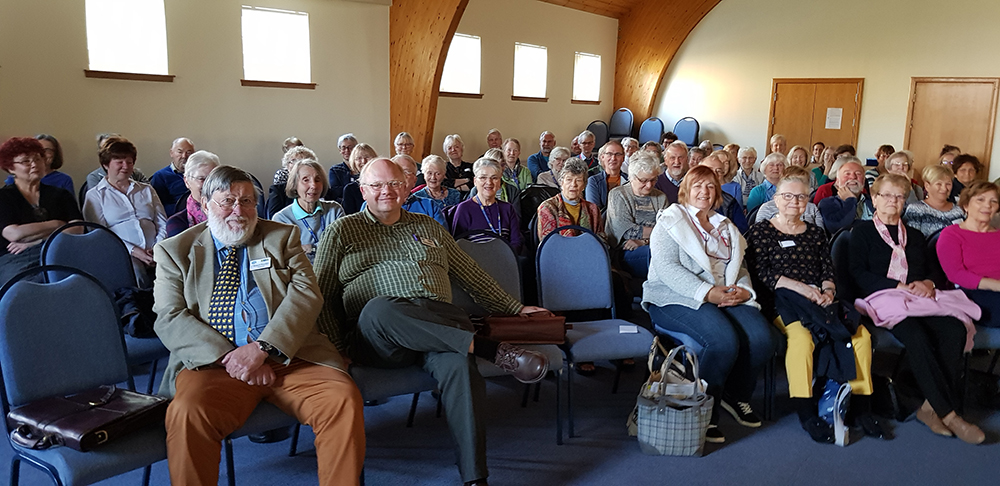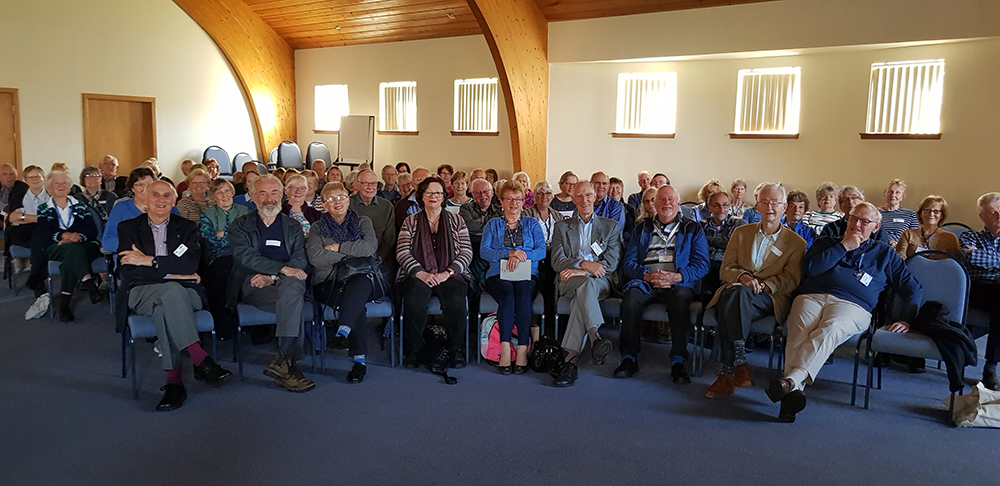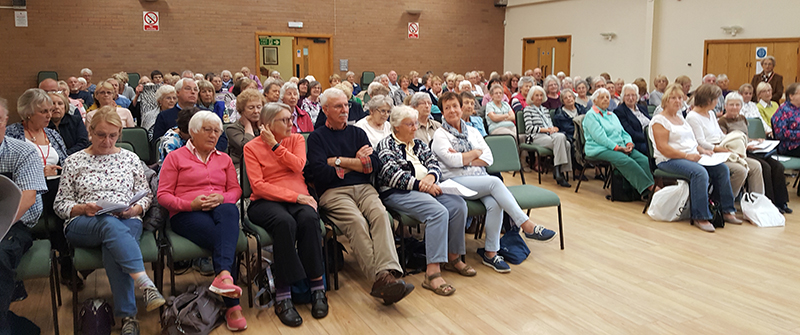The University of the Third Age (U3A) in the UK is not a ‘university’ as such and is not a ‘hippy group’ but is an association for lifelong learning for those no longer in full time employment; largely the retired, ie the Third Age.
I have spoken to several U3A groups and it was great to be invited as the guest speaker at their open meeting, to my local U3A in Perth, Scotland, and to engage a audience of well over 100 in the topics of conservation, zoos, climate change and China.

The talk came just after the highly publicised Climate Strikes globally ‘led’ by Greta Thunberg, and the UN meeting in New York. The global ‘youth’ movement of passive protest, follows in the tradition of Gandhi, and is rapidly gaining support from all ages and sectors – and its success can be seen not only from the millions who marched, but also from the level of ‘negative’ comment and even abuse aimed at Greta and others. The ‘fossil fuel’ dinosaurs are threatened. So it was opportune, that part of my talk was to focus on the real and present danger that climate change represents for the world as a whole, but also for Scotland – not only wildlife impact but on our economy, our winter sports, our coastline and general well being.

Of course, there are opportunities too, in developement of green technology – and Scotland is doing very well on renewable energy generation, and has set an ambitious target of emissions reduction. I naturally talked about China too – again great ‘green technology’ but with their still growing economy, population and world trade – having a global impact that will continue to see negative climate change impacts – but proportionally perhaps less than western countries such as the USA and Australia.
Fundamentally though, conservation is about people – we are the reason conservation is needed and our emotional attachment to nature and to life is a key to unlocking some of the energy required to fuel to movement to change the way we live and exploit the resources around us. The ‘economic growth’ model is flawed – we can’t keep growing – the climate strikes movement is challenging society… and its not surprising its led by youth, as they do not yet have the unhealthy pressure or burden on them of the way our systems currently work. Why do people demand more pay… and when they get it, what does that mean.. more consumerism, higher prices for homes and healthcare, more cars… and that fuels demand for more pay.
The generation of the U3A members have seen many changes in their lifetime and not all these can be seen to be for the better. Whilst our political systems and governments procrastinate and argue, the climate crisis continues… whilst workers keep campaigning for pay rises and companies focus on over-rewarding their bosses and share-holders, the climate and environmental crisis continues to grow. The next generation are faced with a stark situation – follow in our footsteps and keep the ‘system’ and see the world begin to crumble and fail… or just as challenging (or more so), do things differently, over-throw the current model and begin a way of living that is focused on balance and redressing the problems of today… it’s a huge ask, but with Thunberg and others there is a hint that it may happen… and with our current politicians further evidence that the ‘system’ is broken and has to change.

